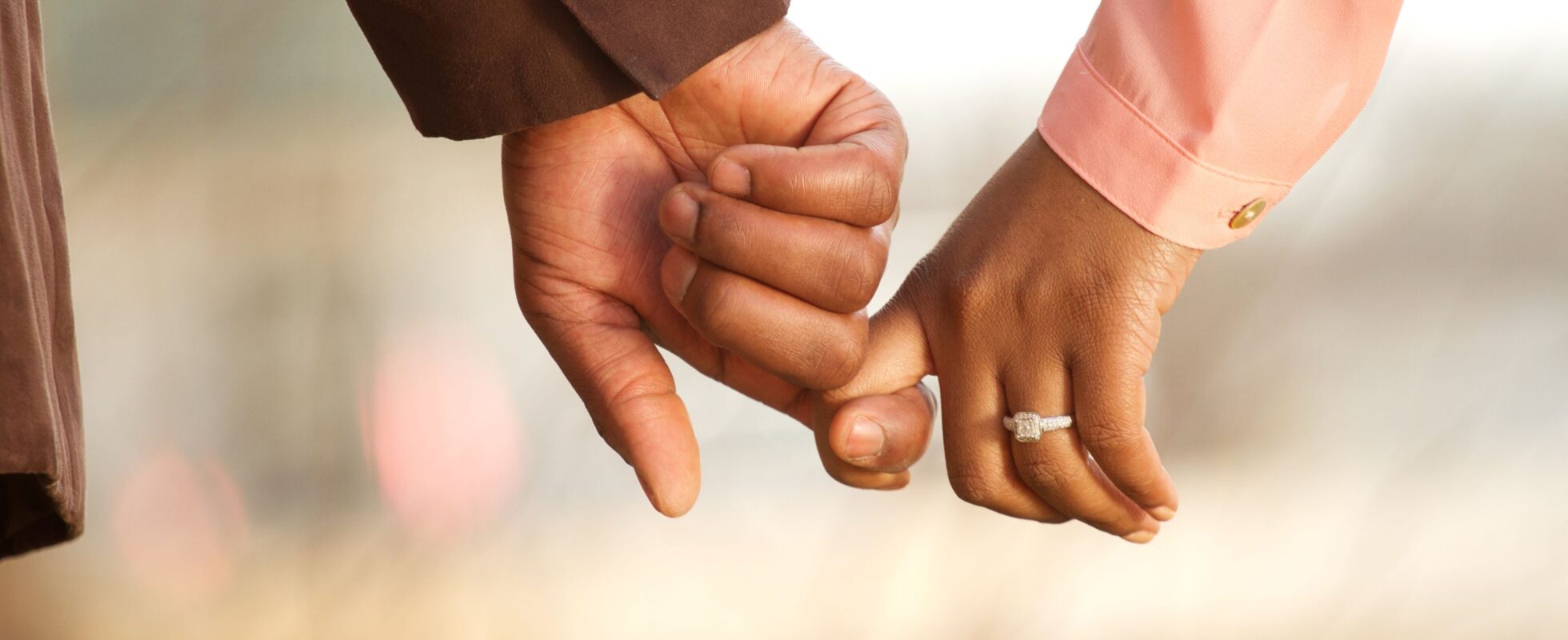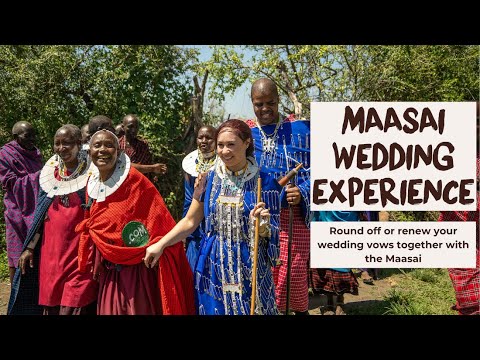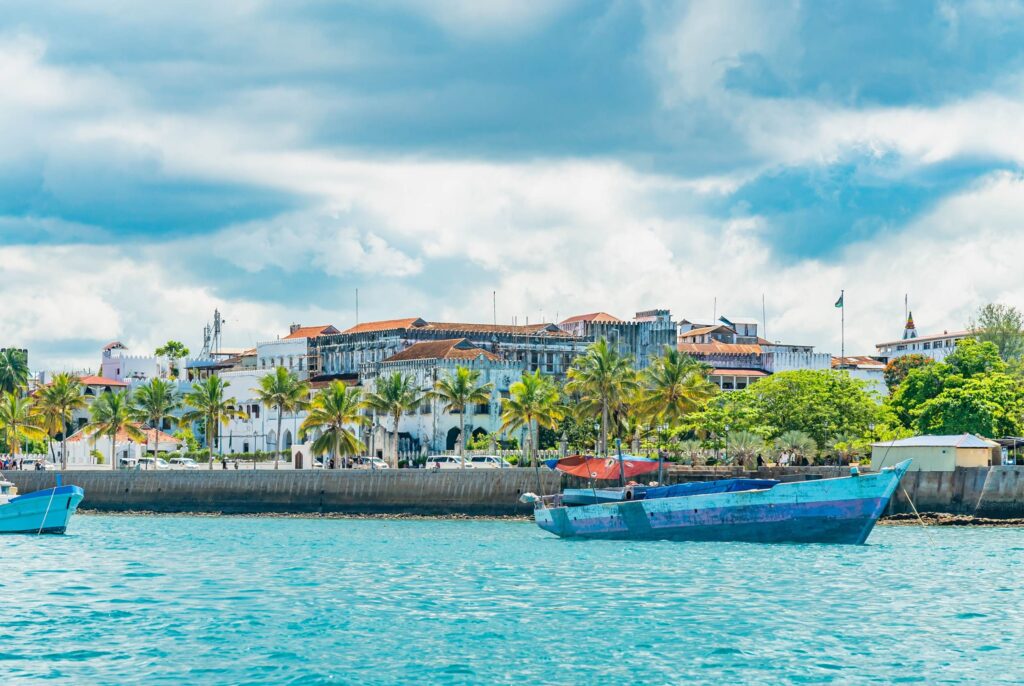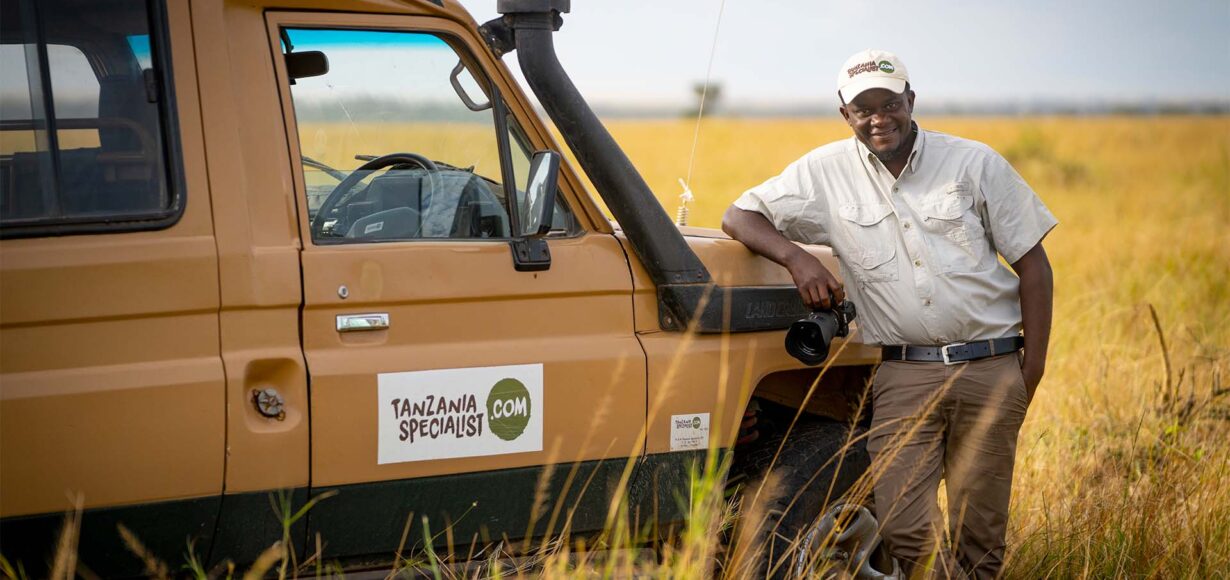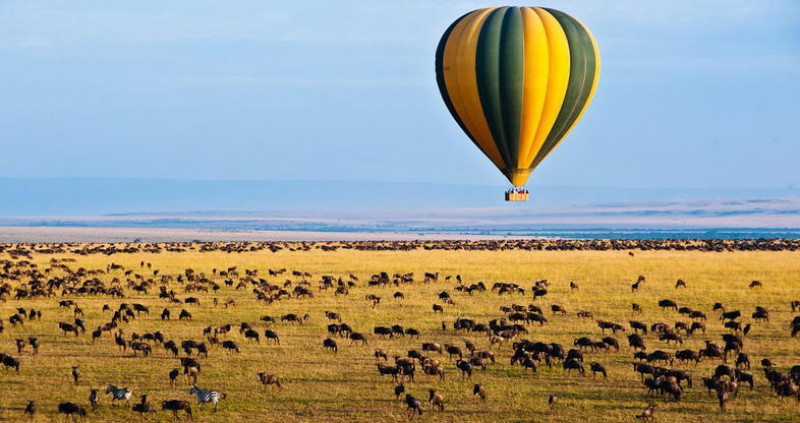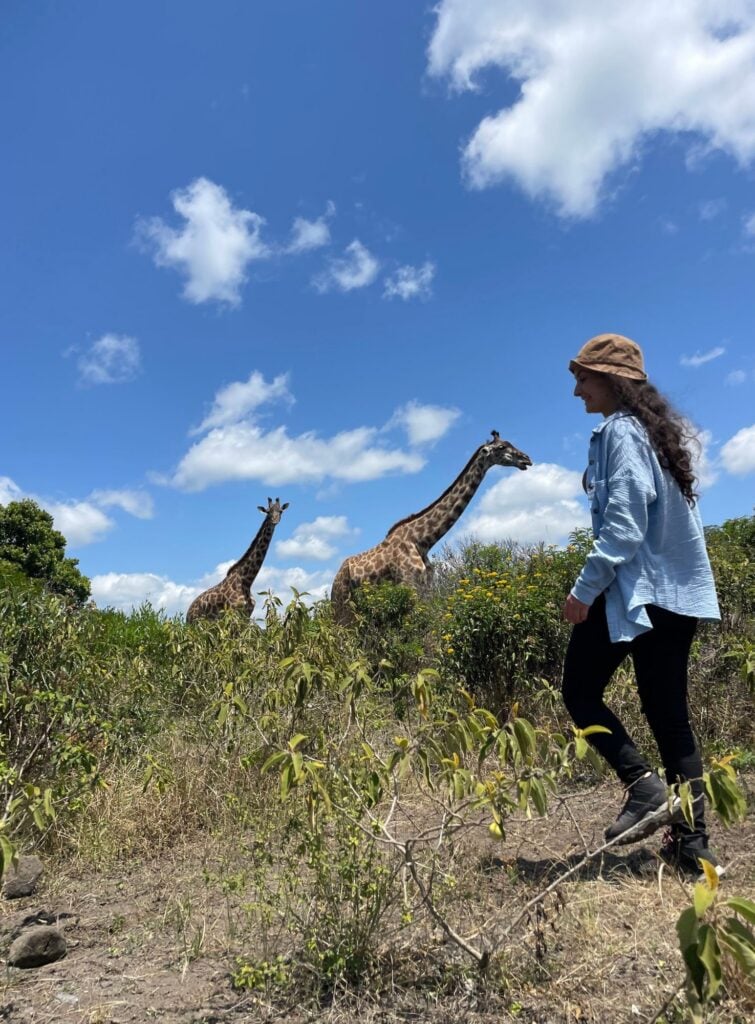
12 July 2024
Tanzanian weddings beautifully unite time-honoured rituals, vibrant attire, delicious food, and lively celebrations. Though wedding traditions vary between the over 100 ethnic groups in Tanzania, most share common threads that date back generations.
At their core, Tanzanian weddings are joyful celebrations honouring not only the bride and the groom but also the family and community. Often, the festivities last for days, with elaborate feasts, dancing, and gift exchange.
So, let’s say “I do” to learning more about Tanzanian weddings and their special traditions.
The Proposal
Let’s start at the beginning… okay, after the falling in love. In Tanzania, the man traditionally asks the woman’s father for permission to marry his daughter before proposing. This practice follows a patriarchal tradition where the father is seen as the head of the household.
However, modern couples frequently break from this tradition, with the man proposing directly to his loved one without first asking her father. Some see skipping this traditional gesture as more progressive and egalitarian.
The traditional proposal itself involves the man bringing a gift, often jewellery or another symbolic item, when asking for the future bride’s hand in marriage. He would present the gift and pop the question. The woman then either accepts or declines his proposal …along with the gift.
No matter the approach, engagements remain joyous occasions involving both families. The excitement of new beginnings and uniting families lingers as wedding plans commence.
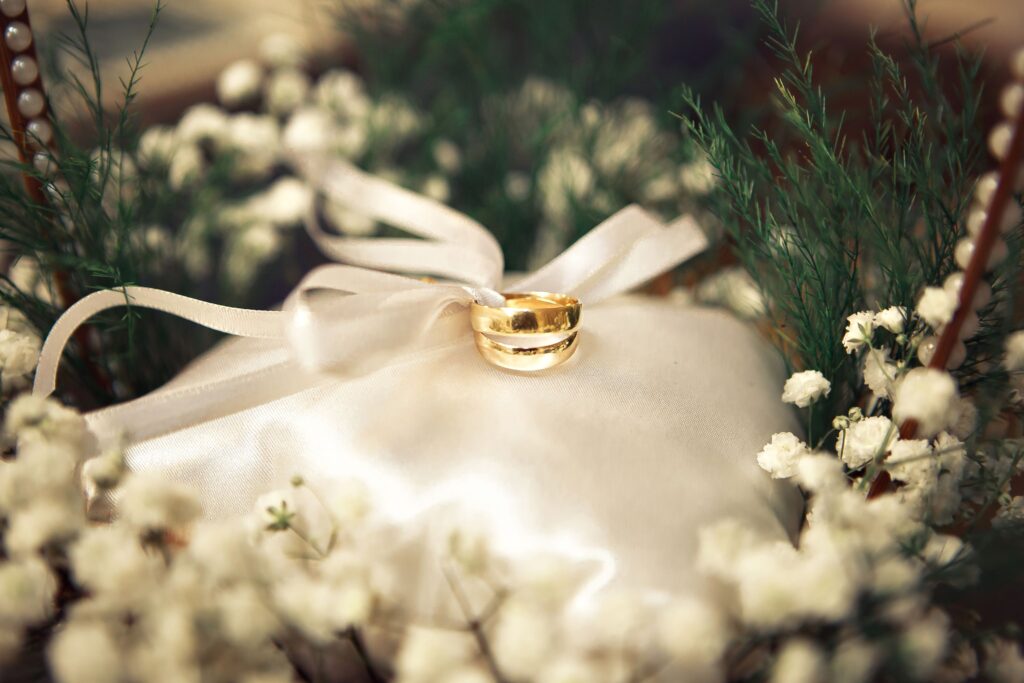
Pre-Wedding Rituals
In Tanzanian culture, marriage is not just the union of two people, but of two families. As such, in the months leading to the wedding, there are several rituals and ceremonies that take place.
One significant pre-wedding tradition is the payment of dowry from the groom’s family to the bride’s family. This dowry, known as “mahari”, is an important part of bringing the two families together.
The groom’s family will visit the bride’s family and offer gifts as they discuss and agree upon the dowry amount. This payment is seen as compensation to the bride’s parents for the care they have provided raising her, and it can include money and cattle.
Another meaningful ritual is asking ancestors for their blessings on the union. Before the wedding, the bride, and groom will hold separate ceremonies with elders and close family to call upon their ancestors to bless the marriage.
The ancestors are seen as guardians of the family and community. So honouring them ensures the couple will live happily ever after.
Wedding Attire
For Tanzanian weddings, the bride, and groom wear traditional clothing representing their culture and heritage.
Brides often wear colourful khanga fabrics that feature beautiful African prints and patterns. The khanga is typically styled as a wrapped skirt and paired with a matching top. Brides also wear a traditional headscarf or shawl called a Kitenge. The kitenge adds a pop of colour and can be worn in many styles.
Grooms traditionally wear a colourful full-length tunic called a kanzu over their pants, sometimes along with a kofia hat. The kanzu is usually white or another light colour, while the hat brings a vibrant dash of colour as a perfect match to the bride’s outfit. Grooms may also wear a formal suit jacket or coat over the kanzu for a modern twist.
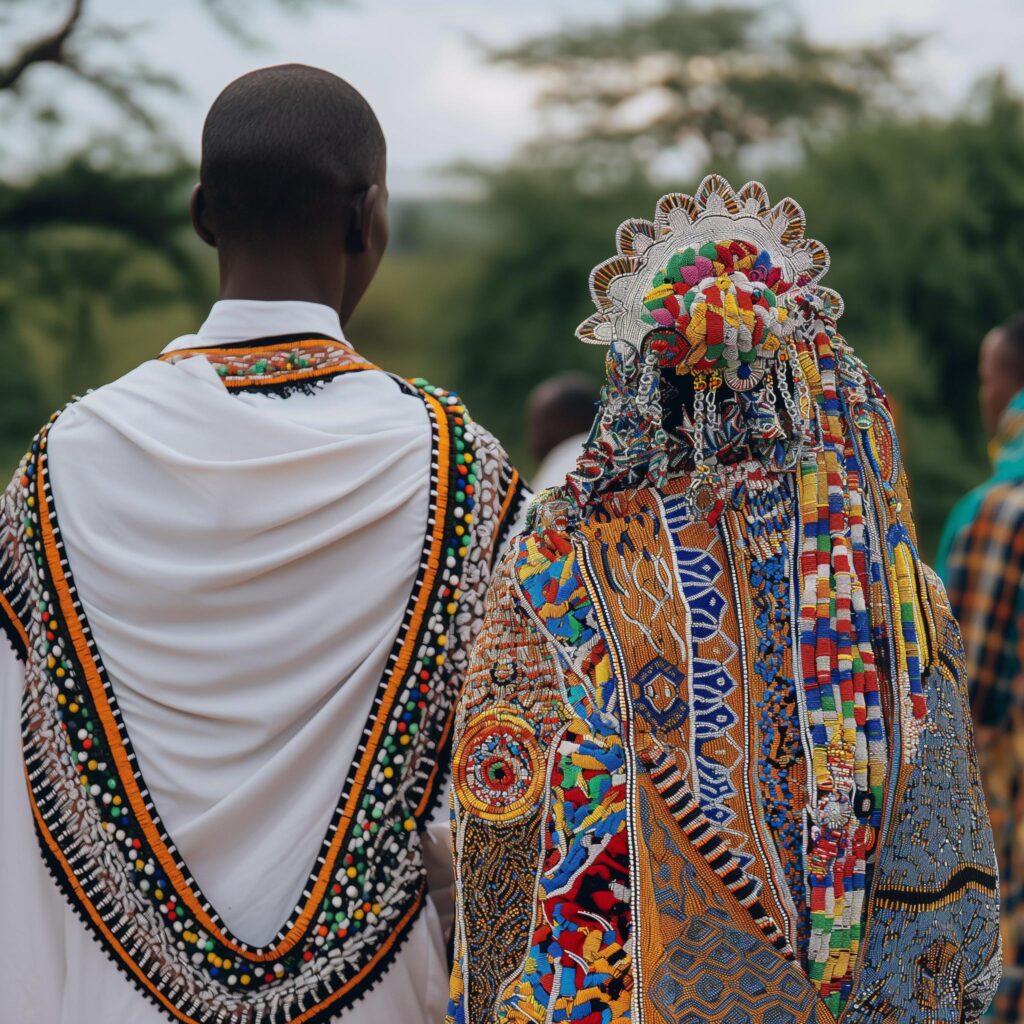
The wedding party members similarly dress up in traditional African clothing and fabrics. Bridesmaids typically coordinate in colourful matching kanga skirts and tops, while Groomsmen wear kanzus or suits that align with the groom’s look.
The vibrant colours and patterns of the wedding attire add beauty and cultural significance to Tanzanian wedding ceremonies. Both the bride and groom dress to impress and represent their heritage through ancient traditions of Tanzanian wedding fashion.
It’s worth mentioning that nowadays, not all wedding couples in Tanzania adhere strictly to traditional attire. Instead, many opt for more contemporary or modern clothing choices for their special day.
Western-style wedding dresses and suits are becoming increasingly popular among Tanzanian brides and grooms, showcasing the diverse ways in which people choose to celebrate their unions.
Wedding Ceremony
Wedding ceremonies in Tanzania are full of shiny colours, lively music, and deep-rooted traditions. The location varies based on the couple’s religious and cultural backgrounds – but churches, mosques, and outdoor spaces are usually the-place-to-marry.
The ceremony begins with a procession, as the bride and groom are accompanied by friends and family to the wedding venue. Once settled, the officiant guides the couple through the rituals, which always include an exchange of vows.
Traditional vows emphasise the importance of commitment, respect, and supporting one another as partners – through good and bad times. Readings from religious texts are common, with Christian weddings drawing from the Bible while Muslim ceremonies reference verses in the Quran.
Some unique Tanzanian traditions also take place during the ceremony. Depending on the specific ethnic group, elders may perform blessings or rituals to signify the couple’s union.
Wedding Reception
The wedding reception is when the real party starts – with plenty of food, loads of live music and even more dancing.
The reception traditionally begins with a grand entrance for the newly married couple. They are welcomed with singing, dancing, and ululation (a high-pitched vocal trill) from their family and friends. The bride and groom share their first dance as a married couple before everyone joins in on the dance floor.
Food is served buffet-style, featuring special Tanzanian dishes and wedding delicacies. Guests line up eagerly to fill their plates with favourites like pilau, biryani, chapati, samosa, nyama choma (grilled meat), and more. Some receptions also offer an open bar with local beers, wines, and spirits.
The party often continues late into the night. That’s no surprise: after all, the reception is a place for the newlyweds to soak in their happiness while relatives and friends share in their marital bliss.
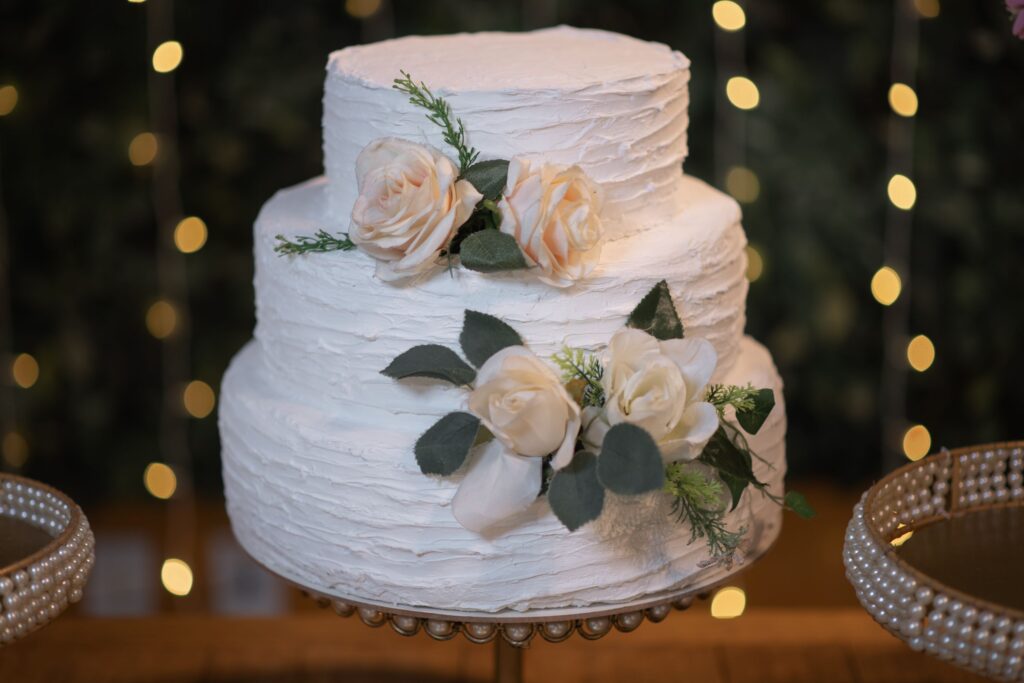
Gifts
Giving gifts is an important tradition at Tanzanian weddings. When a couple gets engaged, it’s customary for the groom’s family to provide gifts to the bride’s family as a gesture of goodwill and to honour their new connection. These gifts typically include household items, cooking pots, decorative clothes, or jewellery.
On the wedding day itself, guests bring gifts for the bride and groom, for example money, household appliances, linens, cookware, electronics, and personal items for the couple.
The most popular gifts are cash gifts, as they allow the couple to get items they actually need in their new home. Guests usually place them in envelopes or boxes and present them when greeting the newlyweds. The monetary amount varies based on the guest’s relationship with the couple, with close family and friends being more generous.
There is a special tradition for gift presentations at the reception: The MC will announce each gift giver’s name as they come forward to give their gift directly to the newlyweds.
Experience it yourself
No matter if you’ve been married for a day or a decade – you can experience a traditional Maasai wedding yourself. Not as guests, but as the main characters! Get married or renew your vows during a traditional Maasai ceremony. While the bride gets dressed in colourful clothing and opulent jewelery in the wedding broma, the groom takes his place in the midst of the warriors, eagerly awaiting his again-future wife. Just like any other Maasai couple, you get blessed by an elder of the tribe. Once the “official” part is over, the party bit is about to start: dancing, eating, singing – become members of the tribe and experience a day you will think back to for the rest of your lives!
Honeymoon
After the wedding festivities wind down, the couple goes on a honeymoon, which they usually spent at the country’s most beautiful and romantic destinations.
A top choice for a first holiday as Mr. and Mrs. is Zanzibar, famous for its pearly white beaches, turquoise waters, and lush nature. Here, the newlyweds can relax at beach resorts, explore Stone Town, go snorkelling together or sail on a dhow boat towards the sunset. Can it get more romantic than this? Yes, keep on reading 😉
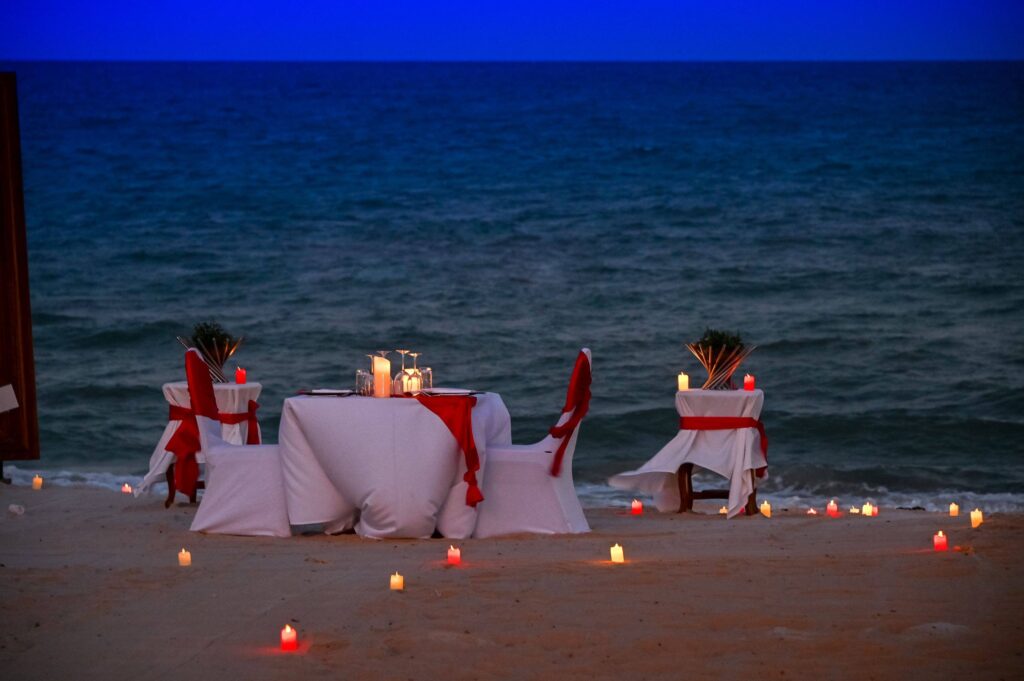
Another popular honeymoon spot is the Serengeti National Park, which makes hearts skip a beat with its spectacular safaris. Newly married couples can visit the Big Five in their home and take hot air balloon rides over the grassy savanna during sunrise. Luxury safari lodges provide cosy accommodation amidst the wildlife. For more isolation, honeymooners can camp in remote sites and gaze at the starry African sky.
The Ngorongoro Crater is also a prime honeymoon destination. The world’s largest intact caldera offers incredible scenery and wildlife viewing from the crater rim.
Other natural wonders like Mount Kilimanjaro, Lake Manyara, and the island of Mafia also attract Tanzanian newlyweds seeking adventure and romance. No matter where they choose to celebrate, all of these locations are perfect for couples to embark on a lifetime of love.
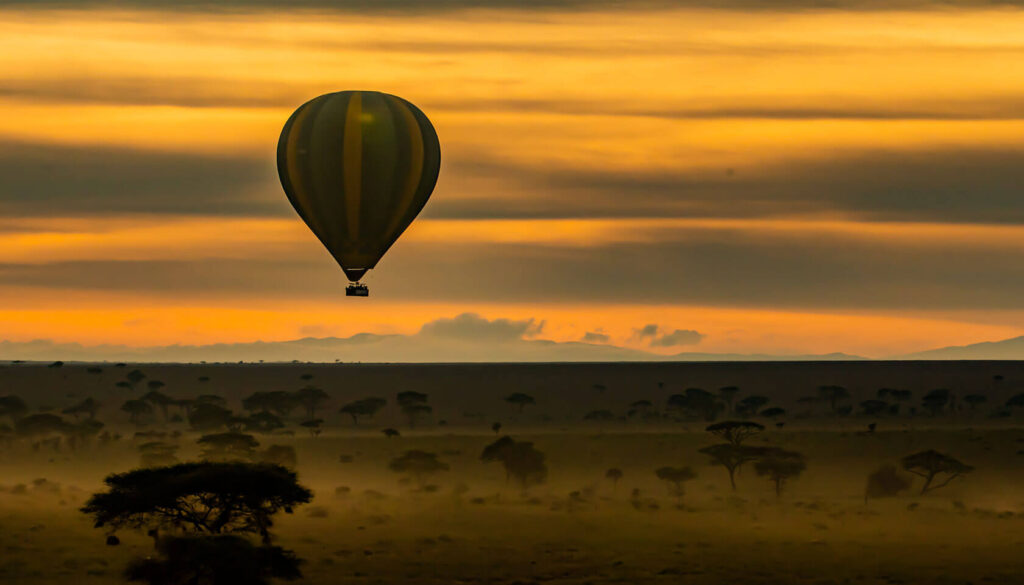
Tanzanian weddings are romantic, fun and know how to honour family values and beloved traditions. Not only do two people become one, but whole families. If you’ve just tied the knot, do it like Tanzanian newlyweds and spend your honeymoon in one of these oh-so-lovely-locations. And should you want to get married a second time during a traditional Maasai ceremony, get in touch 💞
